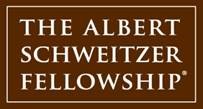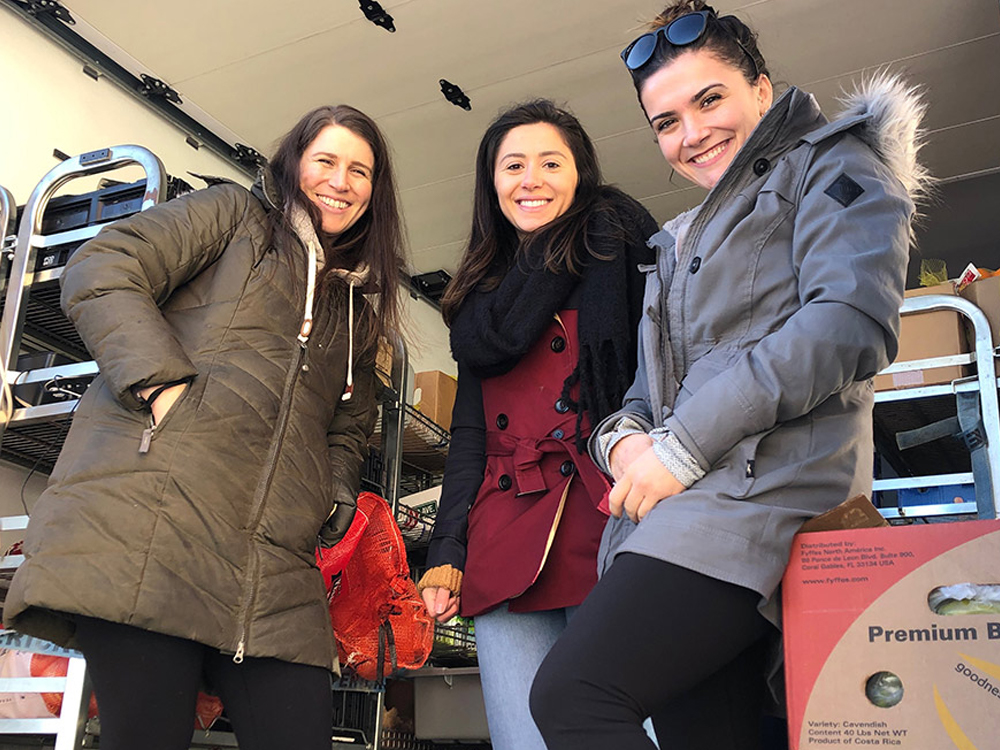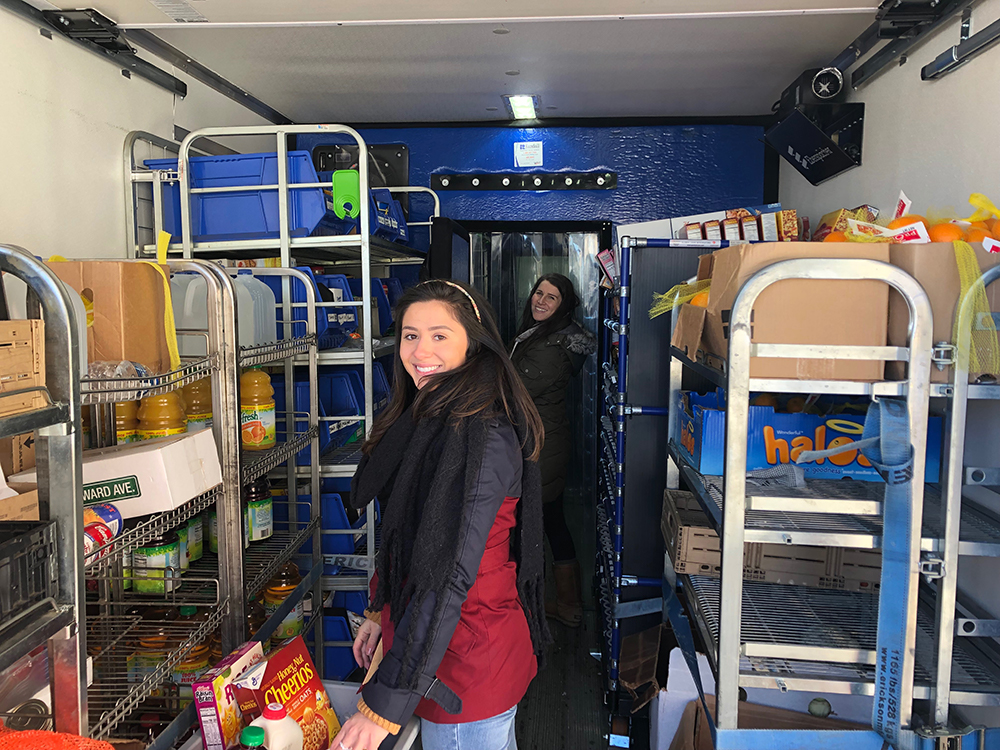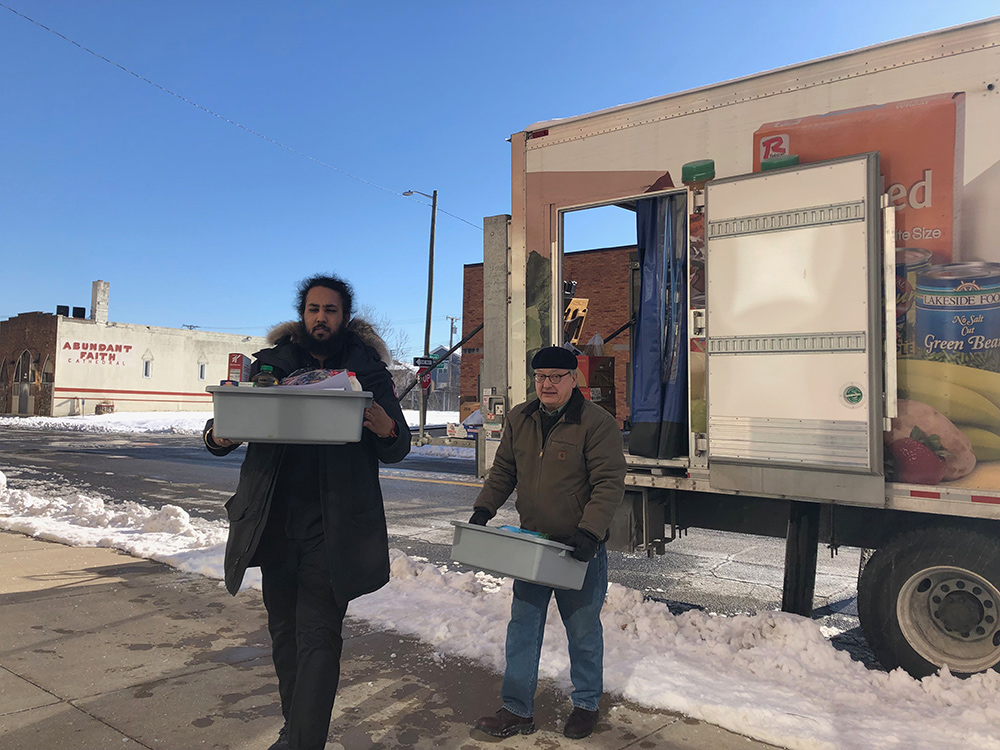The Fellowship, designed for graduate students in the health and human service professions, challenges young people to identify a need, design an intervention and propose a plan with measurable results.

Fellows will grow by:
- Using their skills and knowledge in real-life situations
- Becoming culturally sensitive and compassionate caregivers
- Understanding the impact of social and environmental determinants of health
- Building capacity for and commitment to improving the health of individuals and communities as well as contributing to social change
- Working collaboratively and across disciplines in pursuit of a common goal
- Learning how to exercise leadership skills to work with and influence community-based organizations, community leaders and academic institutions to embrace holistic, service-oriented approaches to health

Upon successful completion of the initial Fellowship year, Fellows will join an alumni network of Fellows for Life – an interdisciplinary pipeline of emerging professionals who are dedicated and skilled in meeting the health needs of underserved communities.
Eligibility
Students enrolled in graduate or professional degree-granting programs from any accredited academic institution in the geographic area may apply. While the applicant’s field of study does not have to be traditionally health-related, his/her proposed service project must focus on health and/or the social determinants of health. Past Fellows have addressed health from a wide variety of perspectives and disciplines including, but not limited to, dentistry, education, engineering, law, medicine, music, nursing, occupational therapy, pharmacy, physical therapy, public health and social work. Applicants must be enrolled throughout the Fellowship year (April-April). Applicants scheduled for a December graduation would qualify.
Defining Health
Fellows focus on health as defined by the World Health Organization (WHO): a state of complete physical, mental and social well-being and not merely the absence of disease or infirmity. Rooted in this holistic understanding of health, Schweitzer Fellowship projects address not only clinical health issues, but also the social determinants of health — defined by WHO as the conditions in which people are born, grow, live, work and age, and which are mostly responsible for health inequities.
Prospective Fellows should be prepared to partner with a local community agency and design a community service project that would provide direct service to an underserved population. This project should focus on addressing health and/or the social determinants of health in the population served.
Application
Click here to submit an application.
The project should:
- Provide a direct service that meets a community-defined need and reflects national and local health priorities, such as Healthy People 2020. Applicants should investigate and reflect on unmet local health-related needs and think through the ways in which their own energies and talents might contribute, even in small ways, to ameliorating one or more of these problems. Applicants are required to communicate with potential community partners prior to submitting their applications and to be specific in their proposals about their relationships with their community partners.
- Be of an enduring value to the community/agency served. Sustainability should be a major consideration in the project proposal.
- Applicants should identify a faculty mentor as well as site mentor prior to submitting their application.
- Applicants may identify a unique proposal or one that innovates on a previous Schweitzer Fellow project. Because the Fellowship is designed as a leadership model, most projects are individual. However, partners are accepted, as long as the roles of partners are distinguishable. Please note that we do not accept applications from groups larger than two.


Fellowship Testimonials & News
2020-2021 Albert Schweitzer Fellows – Detroit Chapter Testimonials

Link to Auxocardia, an online journal for creatives and humanitarians. The journal, created by Schweitzer Fellow, Molly Fessler, was designed to allow a safe space for people who work in “the healing professions” to come together and freely express themselves. To hear more about their heartfelt work, including that of Schweitzer Fellows, Ruth Bishop and Sarah Jabour see the link.
Required Activities of Fellows
Orientation and Retreat
Fellows must attend an orientation in March or April and a Retreat in September.
Midyear Seminar
Fellows gather for a half-day session with a presenter on the topic of health equity. Fellows review the progress of their projects, reflect on service and report to their peers.
Martin Luther King Jr./Albert Schweitzer Birthday Service Project
Dr. King and Dr. Schweitzer were born within days of each other and share many values of humanitarian service. Fellows commemorate the MLK holiday with a service project and reflection.
Service Project
Working in collaboration with a local community agency, each Fellow must design and carry out a service project of at least 200 hours that addresses an unmet community health need. Each Fellow will work under the supervision of a site mentor from the participating agency and an academic mentor of the student’s choice from the student’s current academic institution. The program director is available to provide support and guidance throughout the Fellowship year. The 200 hours must be conducted separately from any school course requirement. Monthly meetings and other Fellowship programming/reports are not part of the required 200 hours. At least half of the 200 hours must be spent in direct, face-to-face contact with the population being served. These direct service hours do not include administrative duties or research. In designing a project, applicants should carefully consider the issues of evaluation and sustainability and include their ideas for addressing these aspects of the project.
Reports
Fellows are required to submit monthly reports about their activities and a comprehensive written final report to their program director, academic mentor and site mentor.
Monthly Cohort Meetings
Fellows meet monthly as a cohort to discuss one of the core competencies of the Fellowship and present progress on their individual projects. These are mandatory meetings.
Evaluation
Fellows are required to complete a national pre- and post-survey for the Fellowship. Each Fellow’s site mentor also must complete a final survey. These surveys are in addition to each Fellow’s evaluation plan for his/her individual project.
Stipend
Fellows receive a financial stipend, distributed in payments throughout the Fellowship year as specific program objectives are completed. The stipend may be used in any way the Fellow wishes, including project related costs and personal expenses.
Celebration of Service
Fellows are required to attend a Celebration of Service in their honor at the end of the Fellowship year. The final report must be submitted before the Fellow is formally recognized as a Fellow for Life.
